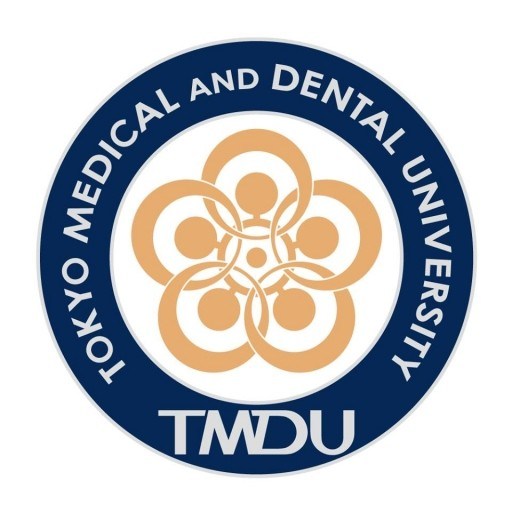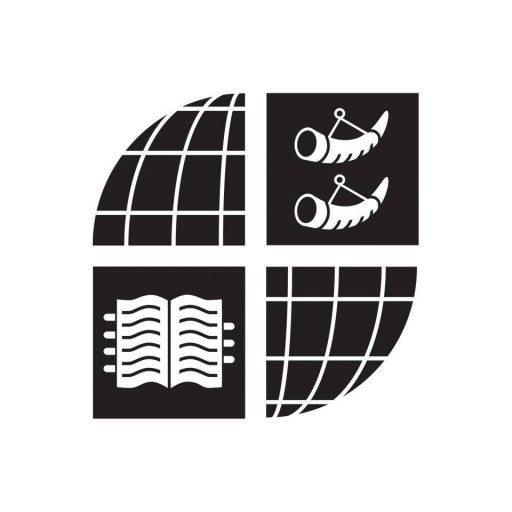Photos of university
The Bachelor's Degree Programme in Biomedical Laboratory Sciences at Tokyo Medical and Dental University (TMDU) is a comprehensive undergraduate program designed to prepare students for a dynamic career in the healthcare and biomedical research fields. The programme aims to cultivate highly skilled professionals capable of performing advanced diagnostic tests, analyzing biological samples, and contributing to medical research and healthcare delivery. Throughout the course of study, students gain a thorough understanding of human biology, pathology, microbiology, hematology, biochemistry, and molecular biology, which are fundamental to modern laboratory diagnostics. The curriculum combines both theoretical knowledge and practical skills, with extensive hands-on training in state-of-the-art laboratories equipped with cutting-edge technology. This ensures that graduates are well-prepared to operate complex laboratory equipment and interpret diagnostic results accurately. Furthermore, students are encouraged to develop critical thinking, problem-solving, and communication skills essential for collaborating with medical doctors, researchers, and other healthcare professionals. The programme also emphasizes ethical considerations and patient safety, fostering a sense of responsibility and professionalism in all aspects of laboratory work. In addition to core courses, students have opportunities to participate in research projects, internships, and international exchange programs, which broaden their perspective and enhance their professional competence. The faculty comprises experienced professors and industry experts dedicated to providing personalized mentorship and guidance. Upon graduation, students are equipped to pursue careers in hospital laboratories, pharmaceutical companies, research institutions, and governmental health agencies. They may also continue their education through graduate studies or specialized training programs. The Biomedical Laboratory Sciences programme at TMDU is committed to fostering a new generation of biomedical professionals who will contribute significantly to advancing healthcare and medical science both in Japan and globally.
|
Class |
Compulsory |
Elective |
Contents |
|
Biochemistry and BiophysicsLectureA-1 |
4 |
The core curriculum for first-year graduate students focuses to provide broad, advanced-level coverage of modern molecular biology. Topics include prokaryotic and eukaryotic gene structure and regulation, chromatin structure, DNA replication, translation, mechanisms of transcription, and an introduction to viruses. |
|
|
Biochemistry and BiophysicsPracticumA-1 |
2 |
This course provides the opportunity to enroll the laboratory to enjoy the vivid and exciting life of researchers. Technical topics includes prokaryotic and eukaryotic gene structure and regulation, chromatin structure, DNA replication, and translation. |
|
|
Biochemistry and BiophysicsLectureA-2 |
4 |
Provides a broad and extensive advanced-level coverage of molecular aspects of genetics for first-year graduate students. Topics covered include: bacterial genetics, recombination in prokaryotes and eukaryotes, mammalian somatic-cell genetics, developmental genetics, sex determination, dosage compensation, and immunogenetics. |
|
|
Biochemistry and BiophysicsPracticumA-2 |
2 |
Through this course, graduate students should obtain the basic skills and knowledge of molecular biology, including the bacterial genetics, recombination in prokaryotes and eukaryotes, mammalian somatic-cell genetics |
|
|
Anatomy and Physiological ScienceLectureA |
4 |
The aim of this course is not only to understand structure and function of the human body but also to learn basic methodology and technology for analysis of results of the morphologic and the physiologic examination. In addition, a study on application methods will be conducted. |
|
|
Anatomy and Physiological SciencePracticumA |
2 |
The aim of this course is not only to understand structure and function of the human body but also to learn basic methodology and technology for analysis of results of the morphologic and the physiologic examination. In addition, an experiment concerning the application will be performed. |
|
|
Biofunctional Informatics, Lecture A |
4 |
Graduate students learn how to measure and analyze biological functional systems, integrating molecular, cellular and organic levels of elements. They acquire, especially, theories, techniques and research approaches of clinical neural/ circulatory physiologic tests and diagnostic imaging. |
|
|
Biofunctional Informatics, Experiment A |
2 |
Graduate students learn how to measure and analyze biological functional systems, especially, theories and techniques of clinical neural/ circulatory physiologic tests and diagnostic imaging. In addition, they perform application experiments. |
|
|
Biophysical System EngineeringLectureA |
4 |
The aim of this course is to learn how the nervous system controls the status and the behavior of neurons and their networks, by modeling the system. Students learn how pioneers have done this task in classical papers. |
|
|
Biophysical System EngineeringPracticumA |
2 |
The aim of this course is to learn how the nervous system controls the status and the behavior of neurons and their networks, by modeling the system. Students learn various techniques and methods for collecting biological data and learn computational models for analyzing them. |
|
|
Experimental Biology Model for Human Disease LectureA |
4 |
||
|
Experimental Biology Model for Human Disease PracticumA |
2 |
||
|
Analytical Laboratory Chemistry Lecturer A |
4 |
One of the special features of this field is a construction of assay method for the particular component in body fluid, such as blood, serum, and urine, which contain thousands of components. In this lecture, innovative chemical and biochemical assay methods for the particular components are explained. |
|
|
Analytical Laboratory Chemistry Experiment A |
2 |
One of the special features of this field is a construction of assay method for the particular component in body fluid, such as blood, serum, and urine, which contain thousands of components. In this experiment course, to understand an outline of chemical and biochemical assay methods, the construction of assay method for the particular component is planned and practiced. |
|
|
Microbiology and ImmunologyLectureA-1 |
4 |
Learn the outline of up-to-date immunology using one of the most popular English textbooks |
|
|
Microbiology and ImmunologyPracticumA-1 |
2 |
Carry out some immunological experiments and discuss the methods, results, and interpretation. |
|
|
Microbiology and Immunology, Lecture A-Ⅱ |
4 |
This course provides the conceptual basis for understanding pathogenic microorganisms and host response. It will also cover current topics related to antimicrobial resistance and bacterial epidemiologic surveillance. |
|
|
Microbiology and Immunology, Experiment A-Ⅱ |
2 |
This course provides opportunities for students to develop bacteriological techniques, and to apply knowledge gained from lecture, discussion and primary scientific articles throughout a research project. |
|
|
Molecular pathophysiology Lecturer A |
4 |
This course will explore the etiology, pathogenesis and pathophysiology of diseases. The course will focus on understanding diseases by studying anatomic and molecular pathology, including macroscopic and microscopic observation of lesions, as well as performing cellular or molecular analysis. The course will also explore laboratory methods of pathology to aid in clarification of pathogenesis. |
|
|
Molecular pathophysiology Experiment A |
2 |
This course will focus on methods and practices of pathology laboratory. Morphological methods (preparation of microscopic sections and electron microscopic samples) and molecular pathology (analysis of genes and proteins from patient samples) will be included. |
|
|
Molecular Genetics of Hematology Lecturer A |
4 |
Students learn health and hematological diseases from clinical and molecular-genetic points of view. |
|
|
Molecular Genetics of Hematology Experiment A |
2 |
Students learn how to analyze hematological disorders, hemostasis and thrombosis, and so on, at molecular -genetic levels and do some original researches. |
|
|
Advanced Analytical Chemistry Lecturer A |
4 |
Basis of instrumental analysis, organic chemistry, analytical chemistry and related fields will be lectured. The aim is to promote a better understanding of instrumental analysis. |
|
|
Advanced Analytical Chemistry Experiment A |
2 |
Practice of instrumental analysis for biological samples. The aim is to experience of some instrumental analysis method. |
|
|
Special Research |
8 |
- Transcript (university, undergraduate school)
- Diploma/certificate of (expected) graduation (university, undergraduate school)
- Research goal outline
- Exam fee payment certificate
- Self-addressed labels
- Documentary proof of surname change (Only if submitted ID documents differ from current surname)
- Self-addressed envelope for exam admission slip
- International application form for graduate school admission
- Color copies of both sides of either residence card or entry visa
The financing of the Biomedical Laboratory Sciences program at Tokyo Medical and Dental University is structured to ensure accessibility and support for students through a combination of tuition fees, scholarships, and financial aid options. The university’s tuition fees are set annually and are comparable to other medical and health sciences programs offered by the institution. Students are required to pay a standard tuition fee, which covers attendance, academic resources, laboratory usage, and access to university facilities. Additional fees may include examination fees, registration fees, and other administrative charges, all of which are detailed on the university’s official website and are consistent with the university’s policies on international and domestic student funding.
Tokyo Medical and Dental University provides a variety of scholarship opportunities specifically aimed at supporting students enrolled in health science disciplines, including Biomedical Laboratory Sciences. These scholarships may be merit-based, need-based, or targeted towards students demonstrating exceptional academic achievement or specific financial hardship. Many of these scholarships are funded by government agencies, private foundations, and the university itself, and they are awarded on an annual basis. To apply, students typically submit an application form accompanied by relevant documentation such as academic transcripts, financial statements, and essays explaining their motivation and need.
In addition to scholarships, students at the university may be eligible for government-sponsored financial aid programs, student loans, and work-study arrangements. The Japanese government provides several loan programs for both Japanese and international students, which can assist in covering tuition fees and living expenses. The university also supports part-time employment opportunities within its campus facilities, allowing students to earn income while continuing their studies without compromising their academic performance.
Furthermore, the university’s international student office offers guidance and support regarding various financing options, including information on external scholarships from organizations related to health sciences, research grants, and sponsorships. Prospective students are encouraged to explore these options early in their application process to ensure they can plan their finances accordingly.
Overall, Tokyo Medical and Dental University is committed to providing financial support mechanisms that enable qualified students to pursue the Biomedical Laboratory Sciences program without undue economic hardship. Through a combination of institutional scholarships, government aid, and private sponsorships, students can access the necessary funds to support their education, participate actively in clinical and laboratory training, and graduate with the skills needed to excel in the healthcare field.
The Biomedical Laboratory Sciences program at Tokyo Medical and Dental University offers a comprehensive education designed to prepare students for careers in clinical laboratory work, biomedical research, and related fields. The curriculum emphasizes both theoretical knowledge and practical skills necessary for analyzing and understanding biological samples, conducting experiments, and contributing to advancements in medical science. Students are exposed to a broad range of topics, including human anatomy, physiology, microbiology, biochemistry, hematology, molecular biology, and immunology. The program aims to develop professionals capable of supporting medical diagnoses and research through precise laboratory techniques. The faculty comprises experienced researchers and clinicians committed to fostering innovative thinking and problem-solving capabilities. The program includes coursework, laboratory exercises, internships, and research opportunities to ensure students gain hands-on experience in state-of-the-art facilities. Graduates of this program are equipped to work in hospitals, research institutions, universities, and pharmaceutical companies. They may pursue careers as clinical laboratory technologists, biomedical research scientists, or educators in the biomedical sciences. The program also encourages international collaboration and offers opportunities for students to participate in exchange programs and joint research projects. Overall, the Biomedical Laboratory Sciences curriculum at Tokyo Medical and Dental University strives to produce skilled professionals who can contribute significantly to healthcare and scientific research, addressing contemporary challenges in medicine and biology.








